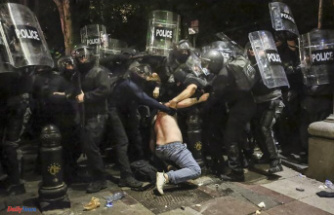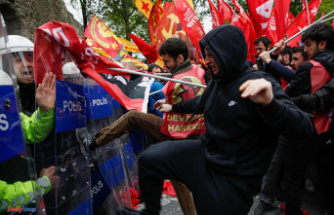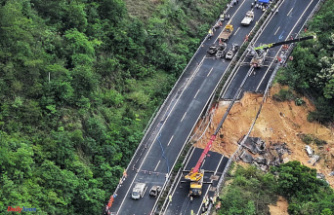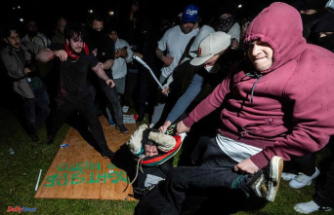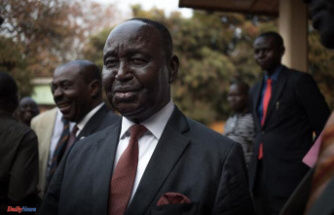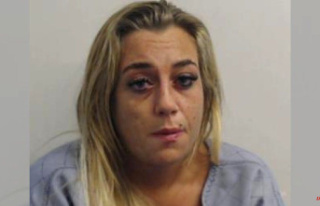Brexit was the catalyst that brought Boris Johnson to the top of UK politics.
He was the face and spokesperson for the campaign group Vote Left. In the wake of the Brexit referendum, Theresa May appointed him as foreign secretary.
He had her deposed for not being too hard on Brexit within three years.
The promise to "get Brexit done" was what he made during his campaign for election.
Although he did reach a Brexit agreement with the EU, the Northern Ireland treatment remains unfinished. This has poisoned many sets of political relations.
What was the evolution of Mr Johnson's position regarding Northern Ireland and Brexit?
Boris Johnson was the main attraction at the DUP party conference Belfast, where his speech was a huge success.
The Conservative government needed DUP support in order to hold power at that time, though the relationship became increasingly tense.
Two weeks prior to the DUP conference, Theresa May, the then-prime Minister, had reached an agreement on a draft withdrawal deal with the EU.
It contained an agreement for Northern Ireland, known as the "backstop". This would mean that Northern Ireland would continue to adhere to EU rules on goods & customs in the absence any other solution.
This was opposed by the DUP, who saw that it would create a trade barrier between Northern Ireland (and the rest of the UK).
The DUP views Johnson as a clean-cut man. He had resigned in July from the government, claiming that Mrs May's move towards a soft Brexit would lead to the UK "for the title of a colony".
This was repeated to DUP believers.
Johnson assured them that the backstop would make Northern Ireland "an economic semicolony of Europe".
He said that any new regulations and customs controls could be detrimental to the "textile of the union".
He said that no British Conservative government would "could or ought to sign up for any such arrangement".
But that promise wouldn't last a year.
In July 2019, Mr Johnson was elected Prime Minister and Conservative Leader of the Conservative Party. He then took his first shot at EU membership in August 2019.
The prime minister wrote a short letter to Donald Tusk, President of the European Council, stating that the backstop could undermine the Northern Ireland peace process and was anti-democratic.
He called for "flexible, creative solutions" to avoid a hard frontier and suggested "alternative arrangements" that were based on technology.
However, by September's end, the prime minister was in a shifting position as the clock ticked towards the end-of-year deadline.
His government suggested that Northern Ireland could continue following EU rules on food & agriculture as part of a package to maintain a soft Irish border.
Initial approval was not received by the DUP from the Northern Ireland Assembly. This would have likely given the party a veto.
The EU and the Irish government were not convinced, as it would have led to a new border for customs in Ireland.
They also feared that a DUP veto could prevent the "all island regulatory zone" from materializing.
Then came a meeting at Thornton Manor, Merseyside with Leo Varadkar, the former Taoiseach (Irish prime Minister).
Johnson appeared to be convinced at that meeting that an even wider alignment between the EU & Northern Ireland was possible. He signed the Northern Ireland Protocol just one week later.
It created unambiguously an Irish Sea border, breaking Johnson's promise to unionists.
It did contain a role for Northern Ireland Assembly. This could reverse the arrangement after four years.
However, this would only be possible with a simple majority. Unionists would not be able to veto.
The DUP, at the time still supporting the Conservative government, was shocked.
To shift the parliamentary votes in Johnson's favor, he would need to be elected with the DUP on his side.
The beginning of a long period where Johnson would misrepresent and misunderstand his own deal would be the election campaign.
Four days after the agreement was signed, civil servants produced an analysis that clearly explained that the protocol would require checks and controls for goods traveling from Great Britain to Northern Ireland. This is the Irish Sea border.
During the election campaign, Johnson repeated his assertion that there would be no checks.
Leaked Treasury analysis refuted Mr Johnson, stating that "The Withdrawal Agreement can separate Northern Ireland in practice form whole swathes the UK's inner market."
It correctly predicted the way many unionists would perceive the protocol: "Northern Ireland symbolically separated from the union/economic unification undermined."
However, this issue was not able to gain much traction during the campaign for the election and Johnson won easily.
The EU was becoming increasingly frustrated by Johnson's description of the deal.
Michel Barnier, EU's chief negotiator, came to Belfast in January 2020 to explain the agreement. He said that the deal meant that goods entering NI from GB would be subject to checks.
However, Johnson still claimed that an Irish Sea border would be established "over my body" in August 2020. This despite the fact that the government had submitted EU applications for border control posts at Northern Ireland ports.
During much of 2020 there was very little progress in explaining the protocol's implementation.
In September, Brandon Lewis, the Northern Ireland Secretary was forced to intervene. He is also a loyal Boris Johnson supporter.
He informed the House of Commons about the Internal Market Bill, which the government was proposing to legislation.
He said that the bill would violate international law in a "very limited and specific way" by overriding certain parts of the Northern Ireland agreement.
This was directed at two areas of the agreement where the UK felt the EU had gone too far.
The law-breaking didn't occur as the EU and UK made a deal, but it showed Mr Johnson's growing regret over what he had signed.
The UK-EU relations deteriorated. By July Johnson was describing the protocol's profound economic, political and social impacts.
The year began with a major EU error in January.
A dispute between AstraZeneca and the European Commission over Covid vaccines put enormous pressure on the European Commission.
The commission announced that it would use Article 16 as part of a series of measures to impose export restrictions on vaccines heading to Northern Ireland. This will prevent this route from acting as a backdoor to the rest of the UK.
The Irish government was not consulted and was shocked, knowing it would anger unionism.
After Mr Johnson gave the brief to Lord Frost, the UK's approach to protocol was sharpened.
Lord Frost's command paper was published in July. It outlined his demands for the radical redrawing and modification of the protocol.
This command paper has remained Mr Johnson's Northern Ireland Brexit strategy since then and is the basis for the Protocol Bill. If passed, it will grant the UK ministers broad powers to unilaterally alter the protocol.
The EU claims the bill is in violation of international law. The Irish government describes it as a new low. DUP members say they won't return to government until the protocol has been resolved.
These relationships now need to be fixed by a new leader.


